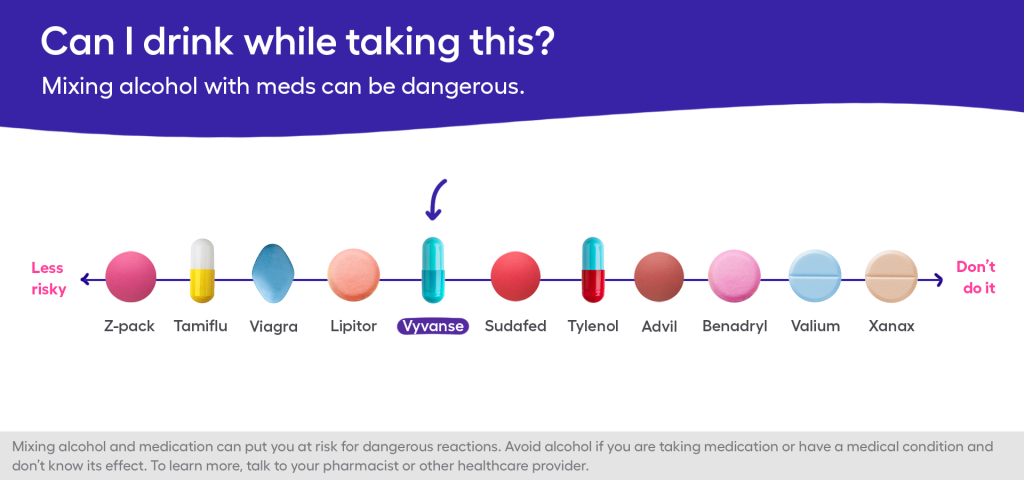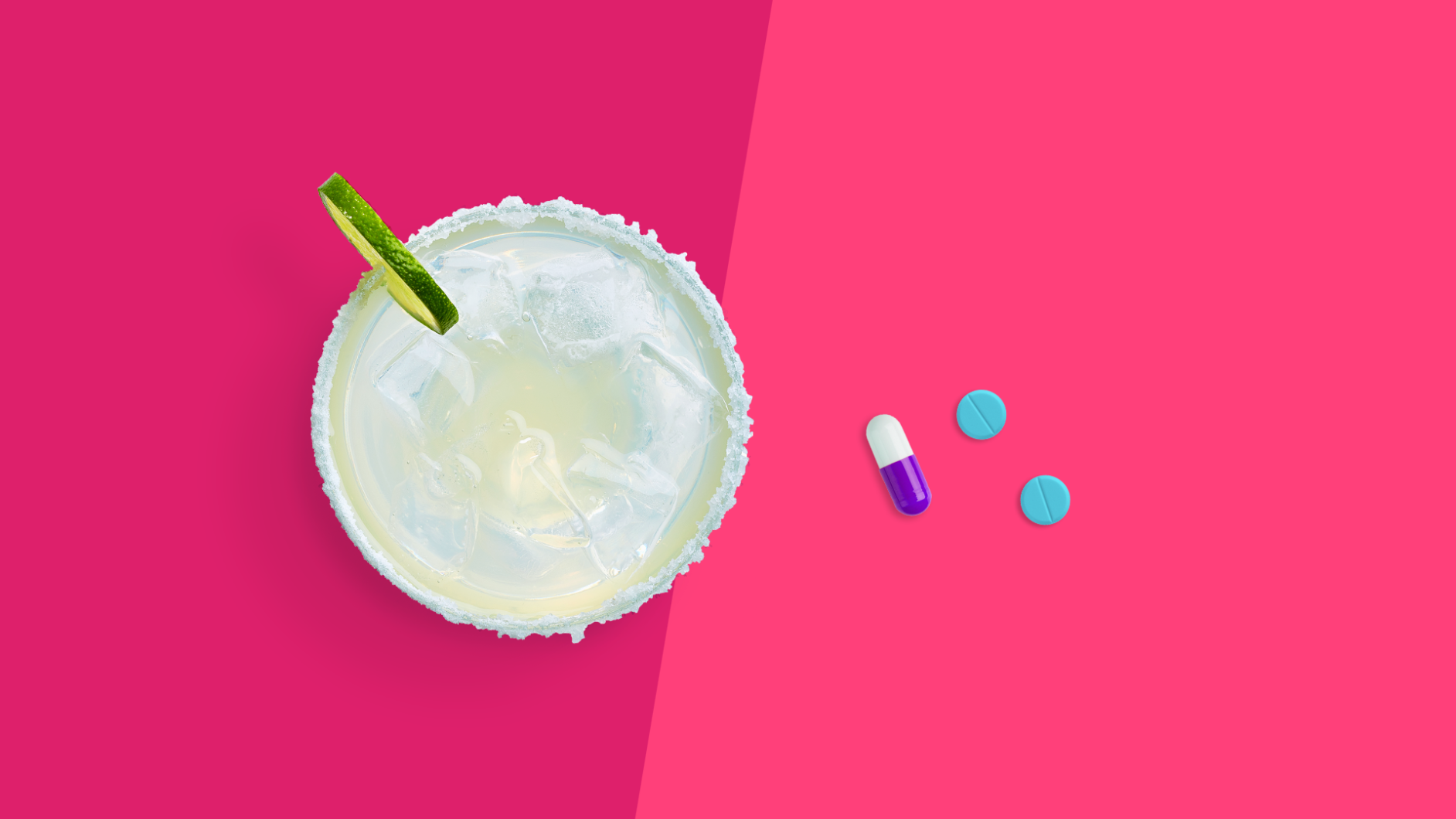Key takeaways
Combining ADHD medication with alcohol can lead to dangerous interactions, including masking the symptoms of intoxication, which might encourage excessive drinking.
Experts recommend avoiding alcohol while on ADHD medication, but if consumed, moderation is critical to minimize complications.
The physiological effects of mixing stimulants (ADHD medication) and depressants (alcohol) can challenge and confuse the body, potentially leading to lethal outcomes.
Consulting with a healthcare provider is crucial for individuals on ADHD medication considering alcohol consumption, as personal health factors and medication types vary.
When you think of ADHD, you probably think of hyperactive kids. But the condition isn’t just a childhood one. Attention deficit hyperactivity disorder—characterized by the inability to focus, impulsivity, poor time management, and restlessness—affects adults, too. Eight million of them in the United States alone. That’s 4% of the adult population.
Treatment for ADHD often comes in the form of prescription stimulants, such as Ritalin or Adderall, which work to boost the amount of active chemical messengers (such as dopamine and norepinephrine) in the brain, ideally leading to an increase in focus and attention.
But what do stimulants mean for your social life? Are you going to have to exchange happy hour for Adderall, or is it safe to have a margarita now and then despite your need for the medication?
While there is some room for negotiation (maybe), depending on what your doctor recommends for you (and you alone), it is always best to err on the side of caution, says Jeff Fortner, Pharm.D., an associate professor at Pacific University in Forest Grove, Oregon.
“Avoidance is ideal and if not, then moderation is critical,” Dr. Fortner says.
Otherwise, you could be opening the door to a serious drug-drug interaction and/or other potentially dangerous complications, says Anna Lembke, MD, an addiction specialist at Stanford University and author of Drug Dealer MD: How Doctors Were Duped, Patients Got Hooked and Why It’s So Hard to Stop.
Combining medication for ADHD and alcohol
The reason the combo of Adderall and alcohol is so concerning, Dr. Lembke explains, has to do with the purpose and function of the two drugs. Alcohol is a downer. Stimulants are uppers. Put the two together and “the whole physiological system gets challenged and confused in a way that is potentially lethal.”
“You have the stimulants that are working to increase focus and activity in the brain, and alcohol has basically the opposite effect—it dulls senses and decreases brain activity,” says Dr. Fortner. “So (combining the two) masks the symptoms of alcohol so people feel less intoxicated than they really are, which can cause them to drink more than they should or normally would.”

Problems can range from lack of impulse control and physical coordination to poor decision-making and even accidents, he says. And, since you aren’t necessarily aware that you’ve had too much to drink, alcohol poisoning—which can cause nausea, vomiting, irregular heartbeat, difficulty breathing and seizures—becomes a very real concern.
“That is when it is time to call 911 and get emergency medical help,” Dr. Fortner says.
Another problem is the fact that drinking alcohol while taking stimulants can perpetuate a cycle of ongoing excessive consumption, Dr. Lembke says, which is naturally problematic (for many reasons).
“The combination fuels the problem of addiction,” she says.
RELATED: Your guide to adult ADHD treatment
Everything in moderation, if you can handle it
So is moderation even possible? Possibly, depending on the person.
“Each patient is unique, but for many patients … having one or two alcoholic drinks spread as far as possible apart from their last dose of medication would likely be fine,” Dr. Fortner says, explaining that this applies to people who are on ADHD medications only; not those who are taking them in conjunction with other medications (since those drugs could have other side effects and other drug-drug interactions).
And, while this should never be done without talking to your healthcare provider first, in some cases it could be okay to occasionally forgo your stimulant in favor of a glass of wine.
“Since stimulants work quickly and also leave the body relatively quickly, some people may be able to skip a dose if they plan to drink later in the day,” Dr. Fortner says. Bear in mind that there are several extended-release ADHD medications—always discuss with your healthcare provider.
However, Dr. Lembke emphasizes that this can be risky in its own right and she urges people to think twice before skipping a prescribed dose of mediation.
“These medications are tweaking the system … so [if you skip a dose] there is no doubt you are triggering your own body’s adrenal system and stress response.”
As always, it’s best to speak with your doctor or pharmacist about your own best options.




